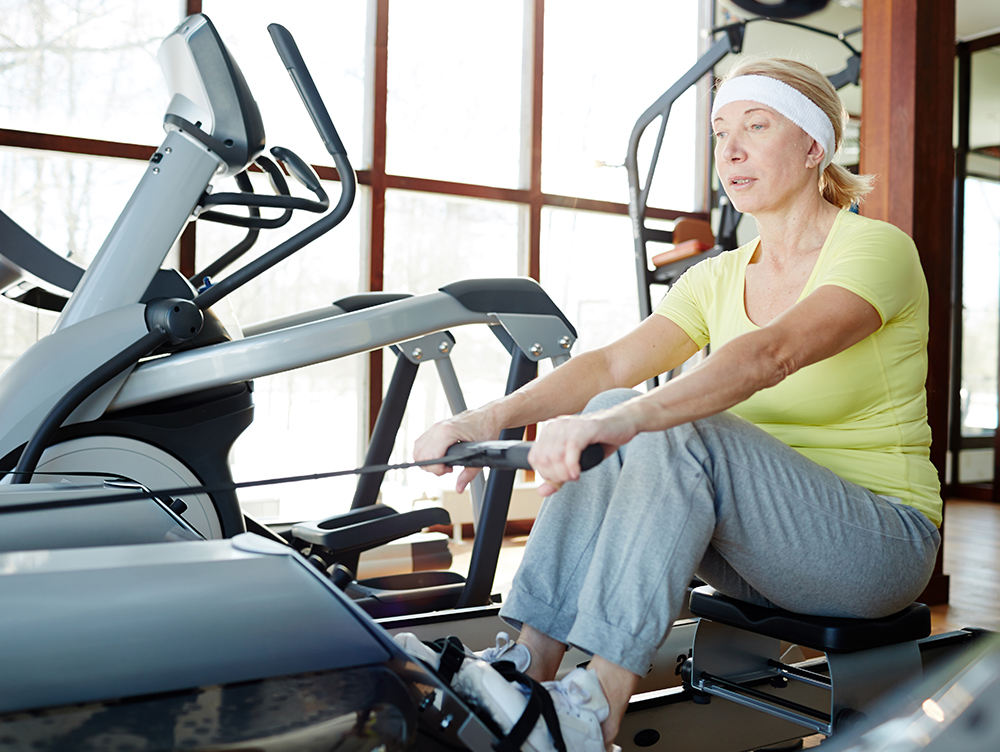Menopause can be a challenging time, especially when it comes to getting a good night’s sleep. With symptoms like night sweats, insomnia, and anxiety disrupting rest, it’s no wonder many women struggle during this life stage. However, by making a few adjustments to your bedtime routine and lifestyle, you can improve the quality of your sleep and wake up feeling more refreshed. Here are some tips on how to get the best sleep during menopause.
Create a Cool and Comfortable Sleeping Environment
Night sweats are one of the most common symptoms of menopause, and they can severely disrupt sleep. To counteract this, keep your bedroom cool by setting your thermostat to a lower temperature or using a fan. Opt for breathable, moisture-wicking bedding, such as cotton or bamboo, which can help regulate your body temperature. Avoid heavy duvets and blankets that might trap heat.
Additionally, choosing the right mattress can make a big difference. Consider a mattress with a gel-infused foam layer designed to disperse heat and moisture. Gel-infused mattresses helps keep your body cool throughout the night by drawing heat away from your body, making it ideal for those suffering from night sweats. This advanced technology provides better airflow, helping to regulate your body temperature and keeping you dry, leading to more restful and uninterrupted sleep.
Stick to a Sleep Routine
Establishing a regular sleep schedule can work wonders for your sleep quality. Try to go to bed and wake up at the same time every day, even on weekends. This helps regulate your body's internal clock, making it easier to fall asleep and stay asleep. A consistent routine can also alleviate the effects of insomnia, which is common during menopause.
Manage Stress and Anxiety
The hormonal changes during menopause can increase feelings of anxiety, making it harder to relax at night. Incorporate stress-relieving activities into your evening routine, such as meditation, deep breathing exercises, or gentle yoga. These activities calm the mind and prepare your body for sleep. Journaling or writing down your thoughts can also help you process any worries, allowing you to drift off more easily.

Watch Your Diet
What you eat and drink can have a significant impact on your sleep. Avoid large meals, caffeine, and alcohol close to bedtime, as they can lead to discomfort and sleep disturbances. Instead, opt for lighter snacks like a handful of nuts or a banana, which contain magnesium and potassium—minerals that promote relaxation. Hydration is key, but try not to drink too much water before bed to prevent waking up frequently for bathroom breaks.
Exercise Regularly
Physical activity during the day can improve your sleep at night. Exercise helps reduce stress and anxiety, stabilises mood, and promotes a deeper, more restful sleep. However, try to avoid vigorous exercise close to bedtime, as this can have the opposite effect and make you feel more energised. Aim for at least 30 minutes of moderate exercise most days, whether that’s walking, swimming, or cycling.

Consider Natural Remedies
Some women find relief from menopause-related sleep issues through natural remedies. Herbal supplements like valerian root, chamomile, and lavender have calming effects that may help you relax and fall asleep more easily. Additionally, essential oils like lavender or bergamot, when diffused in your bedroom, can create a soothing atmosphere conducive to sleep.
Talk to Your Doctor
If your sleep disturbances become too frequent or severe, it may be time to consult a healthcare professional. Hormone replacement therapy (HRT) is an option that some women find helpful for managing menopausal symptoms, including sleep issues. Your doctor can recommend treatments or medications that are tailored to your specific needs, helping you find relief from disruptive symptoms.
Use Relaxation Aids
In addition to herbal remedies, incorporating relaxation aids like sleep masks, earplugs, or white noise machines can help block out distractions that might keep you awake. Eye masks can shield your eyes from light, while earplugs or white noise can drown out noises that might wake you up during the night.
Prioritise Self-Care
Menopause is a time to focus on your well-being, both physically and mentally. Prioritise self-care by creating a bedtime routine that feels good for you. Whether that’s reading a book, taking a warm bath, or practising mindfulness, dedicating time to relax before bed will signal to your body that it’s time to wind down.
Conclusion
Though menopause can disrupt sleep, making small changes to your routine and environment can make a big difference. From cooling down your bedroom to managing stress and anxiety, these tips can help you get the restful sleep you need. If sleep problems persist, don’t hesitate to seek advice from a healthcare provider who can offer additional support.
At Archers Sleepcentre, we understand the importance of a good night’s sleep at any stage of life. That’s why we offer a range of high-quality mattresses, including those with gel-infused foam layers, designed to disperse heat and moisture, enhance comfort, and help you rest easy during menopause and beyond.